The True State of Global Warming
Edited by
PATRICK J. MICHAELS





PATRICK J. MICHAELS
Ross MCKITRICK
ROBERT C. BALLING JR.
JOHN CHRISTY
RANDALL S. CERVENY
DAVID R. LEGATES
OLIVER W FRAUENFELD
ROBERT E. DAMS
SALLIE BALIUNAS
ERIC S. POSMENTIER AND WILLIE SOON
It is the tension between creativity and skepticism that has produced the stunning and unexpected findings of science.
-Carl Sagan
No science is immune to the infection of politics and the corruption of power.
-Jacob Bronowski
The strongest arguments prove nothing so long as the conclusions are not verified by experience. Experimental science is the queen of sciences and the goal of all speculation.
-Roger Bacon
 ith few exceptions, scientific controversies rarely intrude into the consciousness of the general public, yet the vocal debates, in America and worldwide, over climate change are widely reported. The reasons for this are not surprising: weather affects everyone, every day, and the social and economic impacts of a radically changed climate are hard to comprehend.
ith few exceptions, scientific controversies rarely intrude into the consciousness of the general public, yet the vocal debates, in America and worldwide, over climate change are widely reported. The reasons for this are not surprising: weather affects everyone, every day, and the social and economic impacts of a radically changed climate are hard to comprehend.
In fact, people have little understanding of the exact nature and causes of climate change, in spite of-or perhaps because of-the vast amount of sensational literature available. There are many reasons for this. Specialists often have difficulty explaining their research to the public, in part because the basic principles of scientific methodology are not widely known. Even fundamental principles of climatology-such as that climate always changes, sometimes very abruptly in as little as a few decades-are unfamiliar to most people. The mechanisms and pace of climate change remain the subject of considerable uncertainty and scientific inquiry. Given that, it is not surprising that the public has a difficult time making sense of the debate.
As the essays in this volume reveal, the state of certainty about the science of climate change is greatly exaggerated. Major questions have yet to be adequately resolved, including natural variability; climate sensitivity, which is the effect on temperature from a doubling of CO7; cloud formation; water vapor; climate feedbacks; temperature differences between the surface and lower troposphere; ocean currents; aerosols; and solar and lunar influences. The inability to fully understand these complex systems has significant implications for public policy. Yet this message is rarely carried to the public. And when it is, those with the fortitude to raise such questions are dismissed as skeptics or worse.
The climate change issue burst on the public scene in 1989. During a second consecutive, unusually hot summer, a NASA scientist testified before Congress that global warming was taking place and was serious. With that, the apocalyptic bandwagon got rolling. No one paused to consider that just twelve years earlier the National Science Board told the new Department of Energy that the "present time of high temperatures should be drawing to an end ... leading into the next glacial age" The fact that scientific opinion could change so radically in little over a decade should have stopped the rush to judgment. And it should have certainly served as a healthy dose of humility. It did neither. Our greatest problem is not ignorance; it is the presumption of knowledge.
A powerful and hardened orthodoxy contending that the "science is settled and that there is a consensus" among scientists that human activities are causing serious ecological problems clearly has formed. These tenets of faith are usually included in skillfully worded statements that imply more than they actually say. Further, the notion of a scientific consensus shapes public perceptions and pushes policy choices toward the acceptance of constraints on energy use.
The influence of this imagery is clearly evident. The periodic summations of the state of climate science by the Intergovernmental Panel on Climate Change (IPCC) carry enormous weight in policy circles around the globe, shape how the media treats the climate issue, and drive the Kyoto Protocol internationally and calls for a cap-and-trade program or renewable portfolio standards in the United States.
But the science on climate change is far from settled, and no one can show with analytical rigor that climate change over the course of this century will be the cause of serious ecological damage.
Since climate always changes, it is the ultimate apocalyptic issue. Freeze or fry, wet or dry, industrial activity is the culprit, and mandates controlling economic activity are the solution. Alarmism is a proven technique for fund raising, gaining recognition, and rushing to judgment.
Alarmism finds strength in our national susceptibility to being misled. This was insightfully documented four decades ago by the eminent historian Daniel Boorstin in his book The Imaoe: A Guide to Pseudo-Events in America. Boorstin made the point that there was a growing gap between what an informed citizen needs to know and can know. This gap, combined with extravagant expectations, makes us susceptible to being misled and to self-deception. We have created a world where reality is tested by images, rather than images being tested by reality. Regrettably, it has become easier to exploit problems than solve them.
The essays in this volume expose the lack of certainty in the bold statements of fact by the IPCC and document the numerous misstatements, omissions, and mistaken conclusions of the Third Assessment's Summary for Policymakers (SPM). The systematic overstatement of the interpretative findings of the SPM should be enough to give pause and to encourage greater awareness of the actual details of the scientific record. This volume offers those details so readers can decide for themselves whether the alarmism about climate change is justified.
Policy makers will be better served if they know where there is legitimate consensus and where there are major disagreements. Clarity in communication could begin by articulating what is known about human influence, what is unknown about the climate system but perhaps knowable in a reasonable time with additional research, what may be unknowable in any reasonable time period, what information is the most important for nearterm policy decisions, and why specific uncertainties are important for policy making.
Wise, effective climate policy flows from a sound scientific foundation, a clear understanding of what science can and cannot tell us about human influence on the climate system, and the consequences of alternative courses of action to manage risk.
-William O'Keefe, CEO
Jeffrey Kueter, President
The George C. Marshall Institute

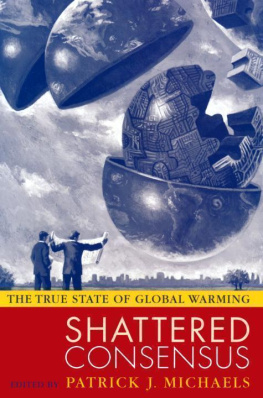
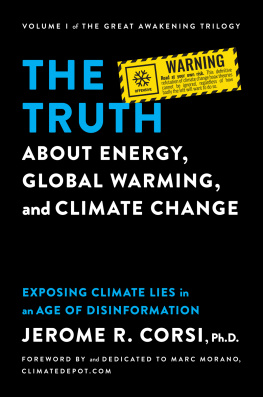
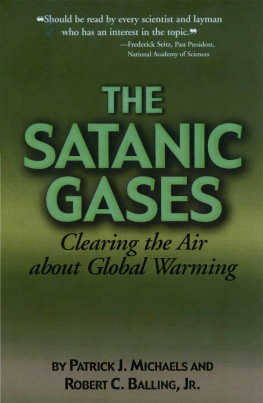

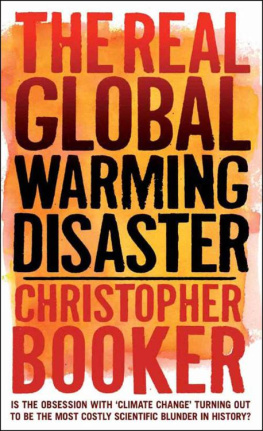
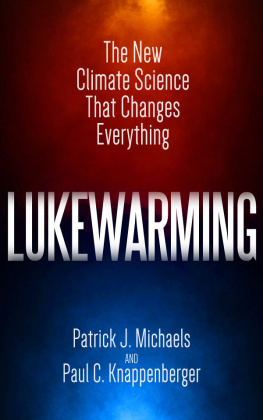
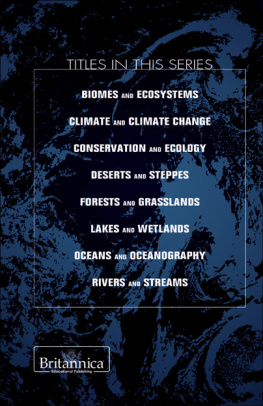
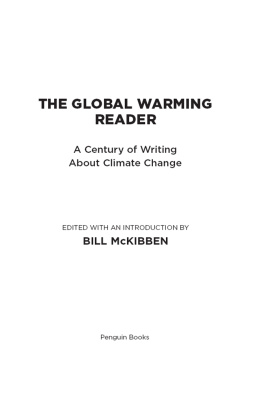
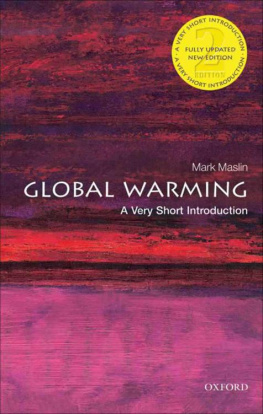

 ith few exceptions, scientific controversies rarely intrude into the consciousness of the general public, yet the vocal debates, in America and worldwide, over climate change are widely reported. The reasons for this are not surprising: weather affects everyone, every day, and the social and economic impacts of a radically changed climate are hard to comprehend.
ith few exceptions, scientific controversies rarely intrude into the consciousness of the general public, yet the vocal debates, in America and worldwide, over climate change are widely reported. The reasons for this are not surprising: weather affects everyone, every day, and the social and economic impacts of a radically changed climate are hard to comprehend.